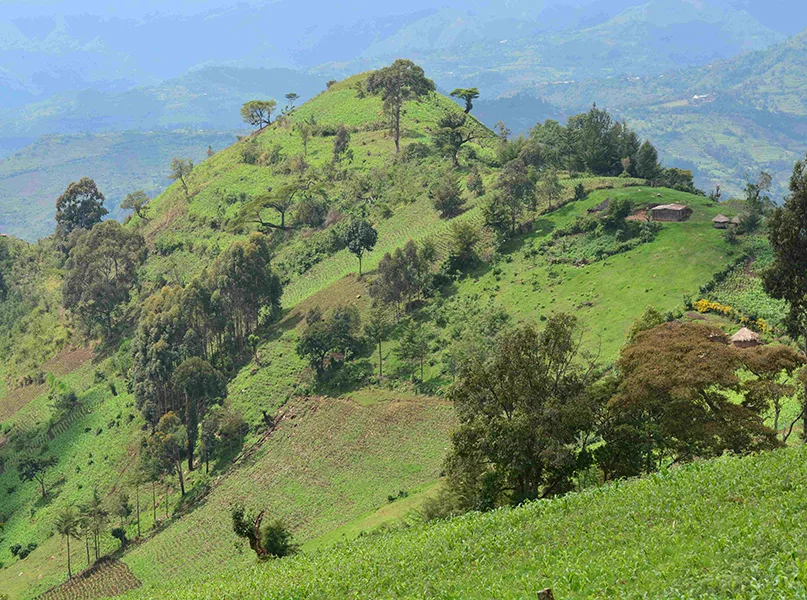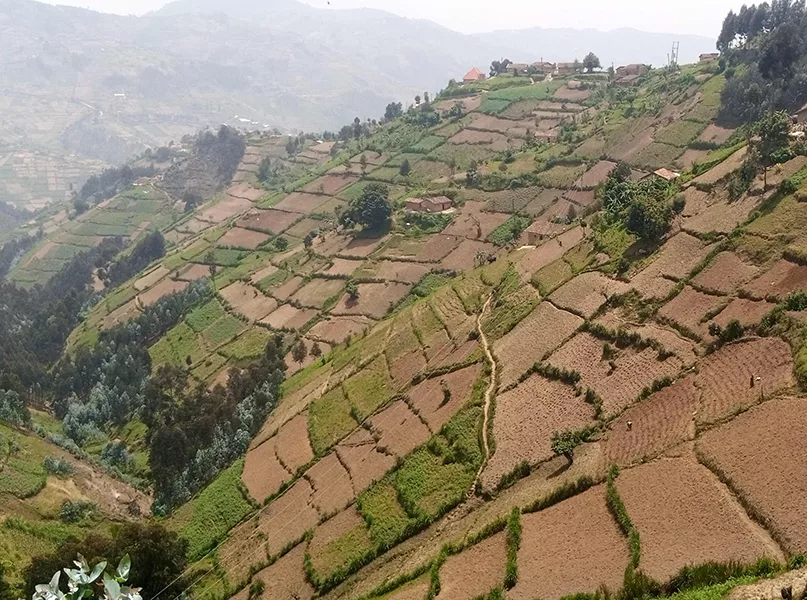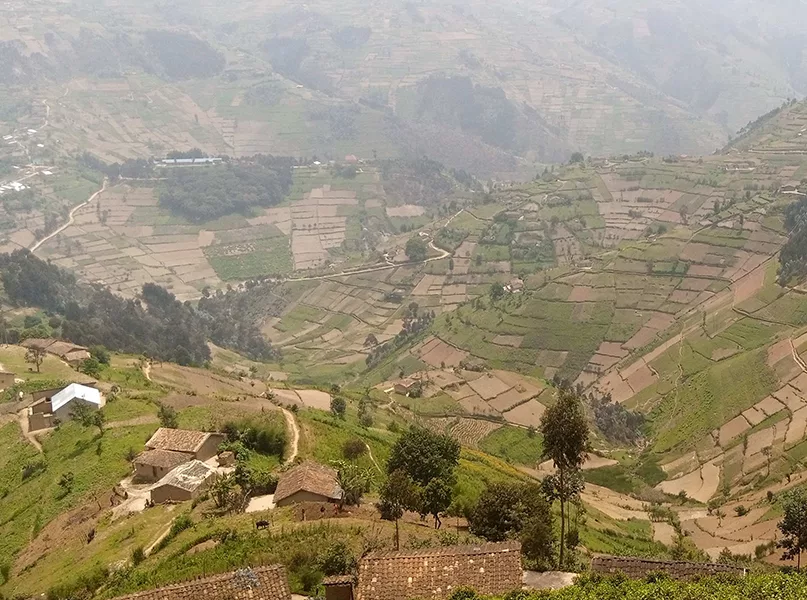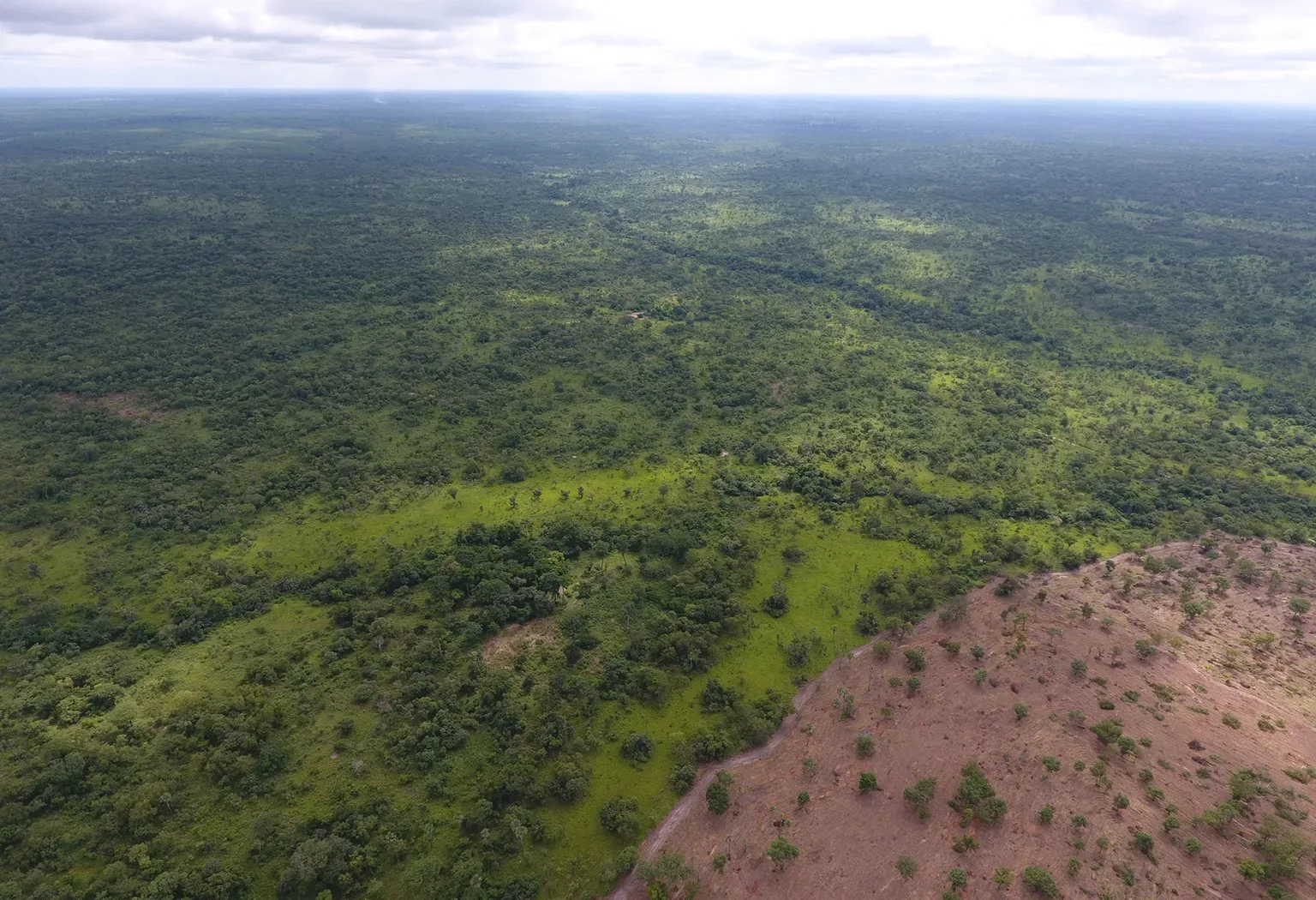With a commitment to planting and maintaining up to six million trees in Kenya, AstraZeneca is harnessing the deep learning capabilities of artificial intelligence to ensure the trees’ long-term growth and facilitate far-reaching health benefits for local communities. Deepak Arora, African Cluster President, tells us more.
OPTIMISING KENYA’S REFORESTATION
As part of its flagship AZ Forest programme, AstraZeneca has made a pledge to plant up to six million trees in Kenya.
The new project, announced at COP28, builds on the company’s recently expanded African reforestation initiatives in Ghana and Rwanda. AZ Forest Africa, a geographical subdivision, is part of AstraZeneca’s broader commitment to plant and maintain more than 200 million trees across six continents by 2030 in recognition of the strong connection between human and planetary health.
Launched in 2020, AZ Forest is a global reforestation and biodiversity initiative aimed at reducing the negative impacts of climate change and making a positive contribution to communities, local economies, nature, and the planet.
“In partnership with non-profit organisations and expert delivery partners focused on global forest restoration, by the end of 2022, the company had planted over 10.5 million trees in Australia, Indonesia, Ghana, the US, and the UK,” opens Deepak Arora, African Cluster President for AstraZeneca.
The company is working with world-leading experts to design and deliver its AZ Forest programme for its Kenya project, including Earthbanc and the Green Planet Initiative 2050 Foundation (GPI2050).
The reforestation in Kenya will span six counties in the west of the country, adjacent to the Rift Valley, covering more than 3,500 hectares (ha) of land. The project will be amongst the first to use an advanced artificial intelligence (AI) deep learning model to analyse drone footage and satellite imagery to monitor tree growth and health, while also quantifying levels of carbon sequestration.
“We use a rigorous and science-based framework with expert input to decide where we make investments and have confidence in the projects we have selected,” affirms Arora.
Designed using a science-based approach and harnessing new technological innovations, the programme aims to promote long-term tree health, increase the biodiversity of flora and fauna, generate an economic boost, and improve overall health for local communities.

GREENER AND HEALTHIER LIVING
AstraZeneca recognises the clear link between planetary and human health. As such, the company holds a firm belief that investing in the natural world through tree planting and conservation, as well as suppressing deforestation, are some of the most effective preventative health steps that can be taken.
“We are investing in both drug R&D and environmental protection because it is the right thing to do. We recognise the strong connection between healthy people, a healthy society, and a healthy planet, and work hard to foster environments in which all life can thrive,” he explains.
Indeed, a growing body of evidence highlights the co-benefits of reforestation beyond sequestering carbon and points towards an abundance of health advantages, including lower air and surface temperatures, reduced air pollution, lower risk of natural disasters, better biodiversity, and improved mental health and well-being.
“At AstraZeneca, we understand that a healthy environment is inextricably linked to the health of people, society, and the planet. There is an urgent need to halt and reverse biodiversity loss,” he adds.
Indigenous and productive tree species planted as part of the AZ Forest programme will improve soil health and local crop yields, while produce, including leaves and honey, will benefit the local agro-economy.
Meanwhile, more than 5,000 local farmers and community members will be engaged in the project, which also aims to support a groundbreaking reforestation ambition from the government as it aims to plant 15 billion trees by 2033.
The role nature-based solutions can play in addressing the climate crisis was a top agenda item at COP28, with the summit placing a focus on the progress made since the COP26 declaration in Glasgow to end deforestation.
New research has underlined the impact that reforestation and the protection of existing trees can have in tackling climate change, potentially sequestering up to 226 gigatonnes of carbon, making it a key priority for the conference.

EXPANDING REFORESTATION BENEFITS
Aside from Kenya, AZ Forest’s global programme aims to span 100,000 ha worldwide.
For example, in Ghana, almost three million trees have been planted this year through a community-led project, known as Living Lab, supporting ecological and community resilience. AstraZeneca partnered with the Circular Bioeconomy Alliance (CBA) on the first-of-its-kind programme, focusing on natural forest restoration, sustainable woodlots, and agroforestry. As a result, the project has engaged with 1,200 farmers across 23 communities.
Elsewhere, in Rwanda, 6,000 farming households have signed up to the Living Lab project, with 16 community nurseries established to grow a range of indigenous and fruit tree species. Planting is set to start in the coming months, with a target to plant around 5.8 million trees across 21,000 ha, in what is one of the largest forest restoration initiatives in Rwanda.
As a highly powerful pharmaceutical giant, AstraZeneca is transforming the future blueprint for reforestation, whilst ensuring the future integrity of Kenya’s reforestation. In the context of COP28, the company’s AZ Forest programme is an exemplar for surrounding global corporations.
































